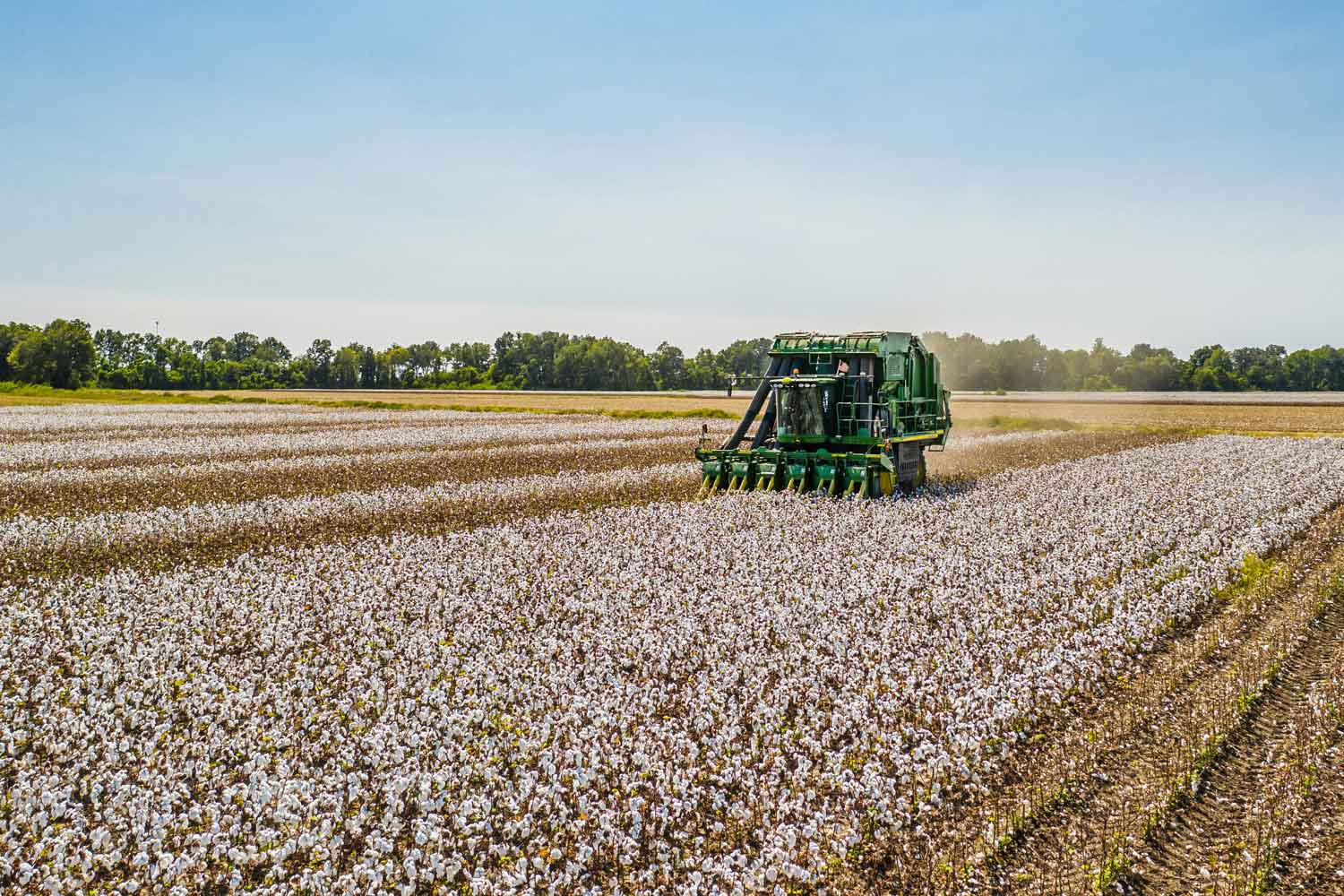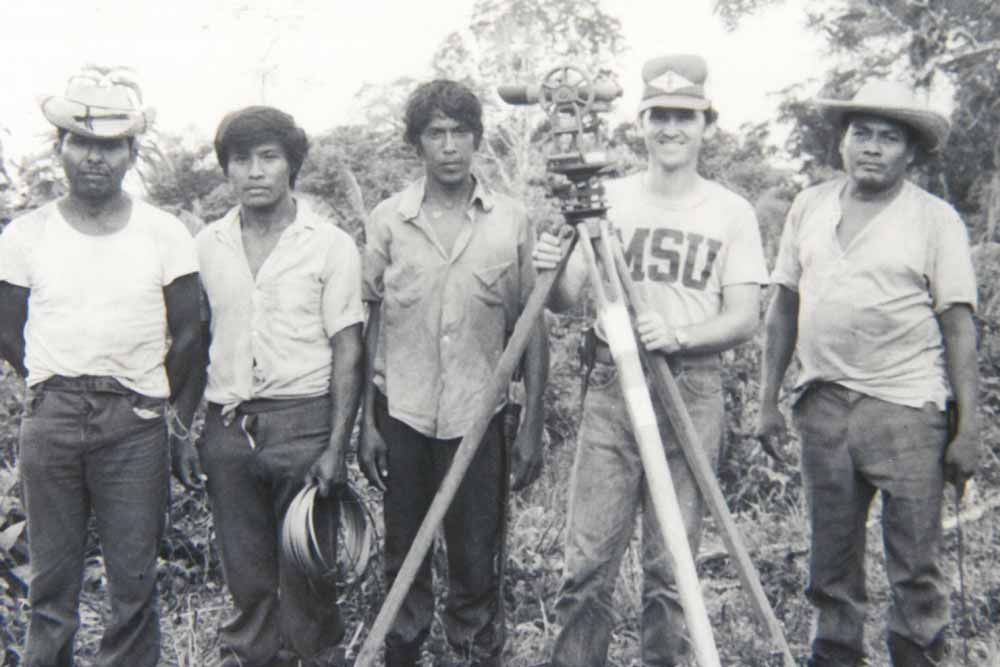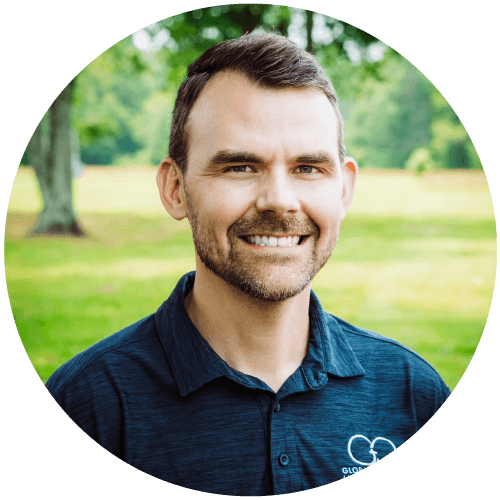Mission Life: The Importance of Preparation
What happens if a farmer scatters seed without preparing the field? The seed lands in many types of soil. Plants grow in soil that is not prepared. The soil can be rocky, thorny, strewn across a path, or full of weeds. When Jesus shares the parable of the seed in Matthew, he describes distinct types of soil. The seed can grow in any soil, but it will grow best in prepared, nutritious soil.
I see our missions organization in a remarkably comparable way. The organization represents the farmer sending missionaries out, in our case, all over the world. In our history of preparing missionaries, we are continuously learning what missionaries need before and while they are on the field. Preparing missionaries and caring for them to the best of our ability is a big responsibility, and we strive to do it in the best way possible. There are many who have not been well prepared. It doesn’t mean the work can’t happen. Nor does it mean that unbelievers will not meet Jesus. However, it does mean many have returned to the US for preventable reasons. Our question has become, “How long will the missionary be resilient and healthy? How long will they continue the work to which God has called them?”
Missionary Care and Support
Global Outreach International (GOI) takes very seriously the health and care of our missionaries. The work they are called to requires preparation, evaluation, examination, challenge, and a tremendous amount of support. Too many missionaries have not been well supported by their organizations and support networks and come home far earlier than expected. Their reasons for coming home are important and necessary to examine.
Living overseas in a culture that is not your own automatically increases stress. When language is preventing you from finding the eggs at the grocery store and the washing machine runs for three hours instead of 45 minutes, your daily activities are the first thing you need to adjust. Your “normal” must change and while it is shifting, the unpredictable nature of life might make you feel a bit like a child. We call this culture stress or culture shock, and it is a normal part of the process of adjusting.
People, even missionaries, need care and support. They are not superheroes. Let me write that for you again. Missionaries are not superheroes. They are people. They have limitations. They may question God. They get discouraged. Like the rest of us, they suffer. So, has God called them? We answer with a resounding, “YES!” We believe God does amazing work in ordinary lives.
Way Back When
When missions organizations discovered what the military did with their soldiers, they took notice.
After World War II, the military discovered that if the soldiers had a place to tell their story, sharing their own experience on the field in their own words, their retention in the military lasted longer. When another simply listened to their story, their resilience increased, and the soldiers served longer (2018).
Missions organizations are learning the same thing. When missionaries are provided the space to share their experience on the field, they become more resilient. Simply being listened to provides much-needed care. So many missionaries have not had the opportunity to tell their personal story while they are building schools, serving the poor, rescuing street kids, running orphanages, teaching seminary courses, etc. They are doing their jobs. Many are doing their work exceptionally well.
Missionaries need the relational care of someone who knows how to listen to them in a way that provides felt, meaningful support. When their story is heard and affirmed, any losses and potential trauma begins to receive care. Sometimes, this debriefing process is enough. Sometimes, missionaries need more care from their organization or referred resources.
It’s what we all need. We need our stories to be heard because we need to be heard. When we are heard, we also feel seen. It confirms our stories and experiences are important as human beings. It confirms a human need to belong, to be part of a community with shared values and that provides loving care.
My Farm Life: Enjoying the Harvest
My childhood is filled with vivid memories of white cotton fields on the farm. Growing up in the Mississippi Delta, I couldn’t wait for harvest time. When fall arrived on the farm in early September, it brought bursting bolls of cotton, a flower bud transitioning from a closed fist to an open hand. The smell of cotton in the early morning dew was distinct and rich all around my family’s home.

As the leaves fell off the cotton plants, it revealed what looked like a Mississippi snowfall. The white fields waited while the cotton pickers stripped the cotton from the plants and dumped them into semi-truck sized trailers to be hauled to the gin.
My uncle always saved one trailer for us kids to play in. He gave us several weeks to burrow, bounce, and frolic in the freshly picked cotton ahead of the trip to the gin. I joined my cousins and my brothers as we dove into the cotton. We dug tunnels through the bottoms, screaming and laughing; we built forts and mazes. The younger children jumped from the top of the trailer down into the soft cotton cushions below. Hours passed without notice.
Eventually, the cotton rolled its way to the gin, but not before we had played our hearts out.
I wouldn’t trade anything for those fall days as a child in the Mississippi Delta.
The Harvest is Plentiful
My mind drifts back to the cotton harvest when I read Jesus’s description of the harvest in Matthew 9. He traveled from village to village, healing the sick and feeding the hungry. He taught and lived the Good News of a coming Kingdom.
In Chapter 9, Matthew writes, “When He saw the crowds, He felt compassion for them, because they were weary and worn out, like sheep without a shepherd. Then He said to His disciples, ‘The harvest is abundant, but the workers are few. Therefore, pray to the Lord of the harvest to send out workers into His harvest.’”
Jesus Felt Compassion
Matthew 9 demonstrates particularly well how Jesus responded with compassion. Typically, He healed the person first. He fed the one who was hungry before He performed any healing. Typically, He healed the person first. He fed the one who was hungry before He performed any healing.
But not here. Instead, this moment demanded something greater than what He had been doing in the prior verses. He saw the magnitude of the need. He saw people He loved who were weary and worn out. They were without care, without someone to tend to their needs, without a shepherd. In His human form, He was only one man.
He looked towards the future and saw a tremendous opportunity to show love. He looked towards a time when He would not go Himself. Rather, He would send his disciples out – the church empowered by the Spirit – to care for people and share the Good News.
He did not heal in this moment. Instead, He commanded His disciples to pray. “Pray to the Lord of the harvest to send out workers into His harvest (Matthew 9:38).”
I think back to those white fields with the abundant harvest of cotton just sitting there. Beautiful, high-quality cotton just waiting for someone to come gather it. I am smelling the dew on the cotton field right now.
There is an Enemy at Work
What I didn’t know as a child was the enemy seeking to destroy the cotton crop. The boll weevil can destroy the flower or boll at any stage of development. This insect can consume the cotton seeds and ruin the cotton fibers. It’s so dangerous the United States Department of Agriculture developed a plan and eradicated the boll weevil. That white field is a target, and the farmer races to get the cotton out in time.
This type of destruction happens in the nations, too, in the places where the Gospel hasn’t reached yet. Our enemy has come to steal, kill, and destroy. He exploits the one living in poverty. He traffics women and children; he deceives their predators who will use them for their own purposes and discard their prey. The enemy wants starvation and suffering, not abundance. Unlike the boll weevil, lies, evil, and the enemy have yet to be eradicated.
Jesus sees the small village tucked away in the Himalayas. He watches the millions in New Delhi, India, who have no clue He exists. He hears the tribal cries in the remote Amazon of Brazil. They are sheep without a shepherd. He sees the enemy at work, and even today He is moved with compassion.
The Laborers Are Few
Compassion moves Jesus. He commands His disciples to pray to the Lord of the Harvest that He would send laborers. Jesus sees an opportunity to do what He was doing earlier in Matthew 9. He preached the good news of the Kingdom of God and healed every disease and every sickness.
Like those green John Deere cotton pickers who arrived right on time to rescue the beautiful cotton bolls from the grasps of the enemy, the laborers step into the Spiritual harvest bringing hope and healing to every kind of disease. This opens an opportunity to bring the Good News of the Kingdom.
Why the Farm?
GOI began as a missions organization when believers like you formed the “Agricultural Missions Foundation (AGF)” in 1970. AGF used farming in Ecuador to open doors for the Good News of Jesus. In the late 1970s, this group became what we are known as today, Global Outreach International. GOI strives to meet as many physical needs as possible to open the doors for the Gospel around the world.

We see the need again for believers to come together. “The Farm” is an initiative of GOI. We won’t be starting physical farms as we did in Ecuador in the 1970s. Instead, as part of this group, you will be raising up and sending laborers to go out into the harvest!
The Next 100
In 2021, we realized we could get the Gospel to every nation within 50 years. The catch? We needed to send 100 new missionaries each year to the mission field. That’s 100 new missionaries going out into the harvest, caring for those who are like sheep without a shepherd.
he problem? In the history of our organization, we had never sent more than 30 new international missionaries in one year. We need to do more than ever to get the Gospel where it hasn’t yet reached in 2,000 years of trying.
Following our vision of The 100, in 2023, 49 new missionaries went to the field – our mission’s organizational record. It isn’t just a number for a number’s sake; we are trusting God to call his workers to the harvest. But to get to the next 100, GOI needs donors such as you to join The Farm, a subscription plan to make giving easy. As a bonus, you’ll receive updates to learn how you are making a difference! You are providing prayer and fuel to help us recruit laborers to our missions organization. You help us to train and send laborers.
Cotton Doesn’t Grow Itself
Cotton doesn’t grow itself. An obvious statement, right? If you leave a field untouched, it will only grow weeds and eventually become overgrown; that’s why land management and farming techniques are so important. It’s year-round work to prepare the soil, plant the seeds, keep the pests at bay, kill the weeds, and finally harvest the crop.
Missionary laborers must be trained in the same way a field must be cultivated – with care and time. It’s our responsibility as a missions' organization to help prepare missionaries for the challenges they will undoubtedly face. People can build resiliency better when they are well supported in a community.
We do not simply want to send 100 laborers to the harvest. Missions is our priority, and we must work to raise up, equip, and support these laborers as they serve on the ministry front-line. That’s the work The Farm makes possible through you who invest in our Kingdom focused ministry.
Will You Join the Farm?
Jesus commanded His disciples to pray to the Lord of the harvest, and the church has been praying for laborers. Will you answer the prayers of the saints that have been prayed for millennia by joining The Farm?
Just like a child playing in that long-awaited cotton trailer, we look forward to the day when we will rejoice in the harvest. In Revelation, we see the picture of every nation, tribe, and tongue around the throne. We know how the story ends, and we know that we each must play a role in the story. What a harvest to rejoice in!
Reference:
Allen, J.A., Crowe, J., Reiter-Palmon, R., Scott, C. (2018). Debriefs: Teams Learning from Doing in Context. American Psychologist. American Psychological Association. amp-amp0000246.pdf (apa.org)
God is calling...
will you join the farm?



